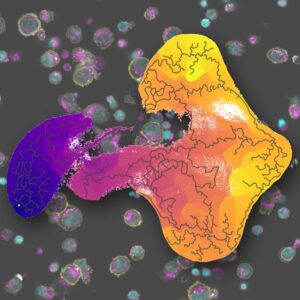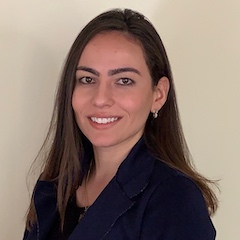Single Cell Genomic Approaches to Study the Immune System - Latin America & the Caribbean
9–11 November 2024
Universidad CES, Medellín, Colombia
Master the application of single-cell genomic approaches to explore the immune system.
Summary
In collaboration with Project Jaguar, ICMT Universidad CES and Universidad de Antioquia, we are excited to offer a complimentary workshop on applying single-cell genomic techniques to investigate the immune system. Single-cell immunogenomics approaches help to understand how environmental factors and genetic backgrounds influence immune responses. This course is designed to equip scientists with the skills and resources to obtain and analyse single-cell omics data. We will highlight the interplay between experimental design, laboratory processing, and downstream analysis, sharing insights from our experiences in profiling the immune system and conducting in vitro stimulations.
In this course we will cover a toolkit of single-cell technologies, including scRNAseq, CITEseq, ATACseq, and immune receptor repertoires in single cell, discussing their benefits, limitations, and best practices. Additionally, we will share our experiences from a large-scale single-cell immunogenomics project involving researchers from various institutions based in seven Latin American countries working in partnership with Wellcome Sanger Institute (Project JAGUAR).
This course will be held preceding the ISCB Latin America Conference on Bioinformatics
Target audience:
Early and mid-career biomedical scientists, MSc, PhD students and postdocs, who are beginning or planning to begin single-cell omics research in the field of immunology, are invited to participate. This course is open to applicants based in Latin America.
A basic proficiency in R or Python is required. Pre-course materials on R and Linux will be provided to prepare participants for the course.
Learning outcomes
What will you be able to do?
After attending this course, participants will be able to:
- Identify critical decisions for the data interpretability in their experimental planning and design with a focus on the immune system.
- Decide the appropriate steps for dataset preprocessing and analysis and apply them within the framework for immunological interpretation.
- Operate both R and Python-based analytical frameworks to conduct single-cell analysis.
- Understand the integration of samples and omics datasets e.g. transcriptomics and CITE-seq, across single cell experiments and how to leverage and interpret the results.
- Describe downstream analysis types appropriate for their biological questions in studying the immune system.
Programme
This hands-on bioinformatics workshop will offer a series of lectures and practical sessions covering the following topics:
- Single-cell basics and immune system applications: From the technology to the implementations.
- Best practices for experimental planning and design focusing on the study of the immune system.
- Single-cell RNA sequencing: from raw sequences to count matrix and downstream analysis through comprehensive data workflows.
- Immune receptor repertoires in single-cell technologies.
- CITE-seq technology to profile cells at transcriptomics and proteomic levels.
- ATAC-seq and multiome analysis.
Instructors and speakers
Scientific Organising Committee
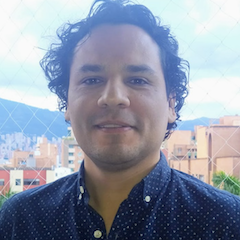
Yesid Cuesta Astroz
University of Antioquía, Colombia

Gosia Trynka
Wellcome Sanger Institute, UK
Instructors and Assistants
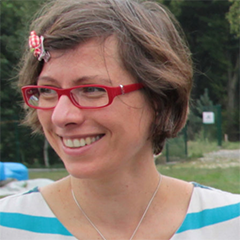
Anna (Ania) Lorenc
Wellcome Sanger Institute, UK
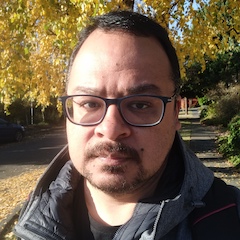
Benilton Carvalho
UNICAMP, Brazil

Carla Jones
Wellcome Sanger Institute, UK

Danilo Ceschin
CONICET, Argentina
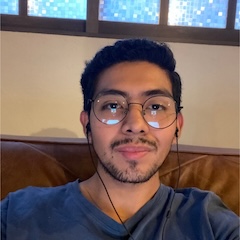
Diego Ramirez
UNAM, Mexico

Evelia Coss
UNAM, Mexico
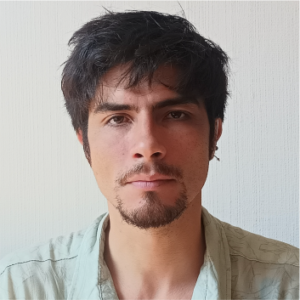
Felipe Gajardo
PUC, Chile

Julieth Lopez
UNAL, Colombia

Lucia Ramirez
Wellcome Sanger Institute, UK

Alberto Delgado
Technical University of Denmark
Organisers - Wellcome Connecting Science

Jorge Batista da Rocha
Education Developer

Karon Chappell
Events Organiser
How to apply
Prerequisites
This course is open to applicants based in Latin America only. Applicants should be early or mid-career biomedical scientists, MSc, PhD students and postdocs, who are beginning or planning to begin single-cell research to study the immune system. The course will be taught in English. Spanish and Portuguese-speaking instructors can provide language support.
A basic proficiency in R or Python is required. Pre-course materials on R and Linux will be provided to prepare the participants for the course.
How to Apply
- Start your application
Click on the “Apply” button above to start your application. Please note that places are limited and will be awarded based on merit.
- Demonstrate the course’s relevance to your work
Our courses are in high demand. Please provide an outline of your work (research project(s) and/ or clinical/ healthcare activities). It is essential to clearly explain how the skills you will acquire from the course are directly relevant to your current role and beneficial to your work, research, or organisation. Please describe your analytical skills (with examples) to allow us to evaluate your level of R/Python proficiency. Preference will be given to applicants who already are working with genomic sequence data.
- Letter of recommendation
Applications must be supported by a letter of recommendation from a sponsor or professional referee such as supervisor, line manager, or head of department. The statement should be tailored to indicate their support of your application and how the workshop could be of benefit. This statement must be uploaded as a PDF document to the online registration system by the application deadline. Applications without a supporting statement will not be considered.
- Need Help?
If you have any questions or encounter any problems with the online application process, please contact us for assistance.
Cost
Cost
This is a free course funded by Wellcome Connecting Science & CZI.
Bursaries
Bursaries are offered based on merit to assist with accommodation, and living expenses during the course. To apply, please complete the “bursary” section on the course application form. Recipients will typically be informed of their award in conjunction with their course acceptance.
Accommodation for bursary recipients will be booked as twin accommodation, meaning you will be sharing with another bursary recipient. Roommates will be allocated based on gender. If you have any concerns, please contact the event organiser. However, we cannot guarantee that we will be able to meet each individual request.
Accommodation services phishing scam – please be vigilant. More information.
